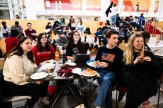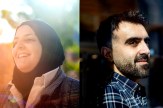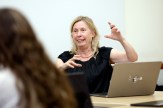The secret life of Jack Bailey, former Northeastern dean and military intelligence commander
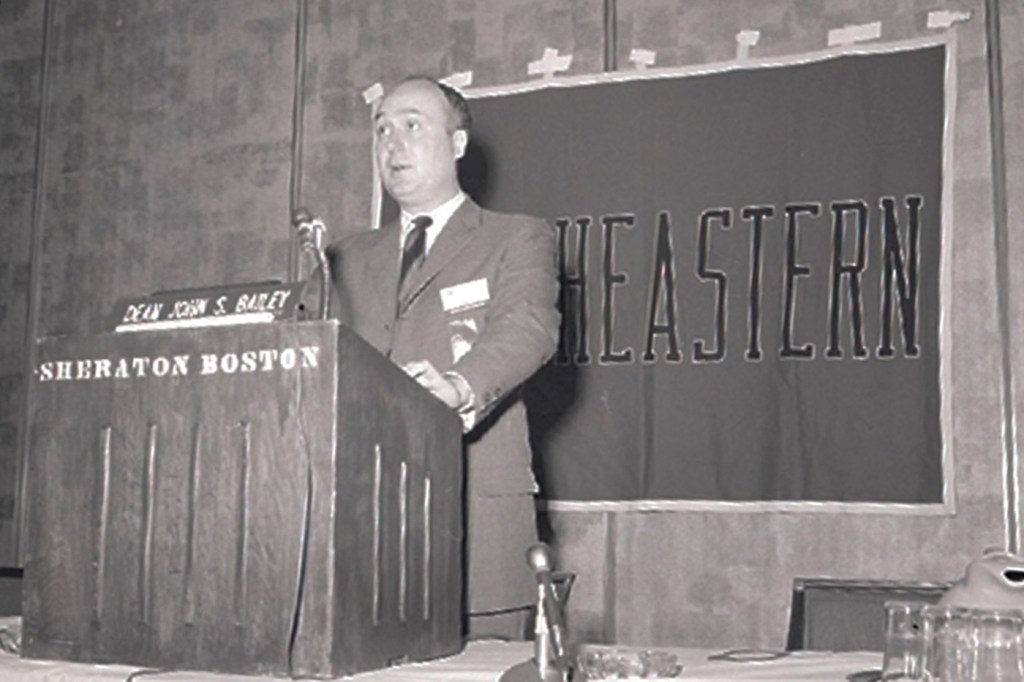
Jack Bailey was an exquisite dresser. This was what you noticed first. He would arrive for work each day at Northeastern’s Boston campus like a character actor in an elegant Alfred Hitchcock film from the 1950s or ‘60s. A tailored suit with knife-sharp creases, a tie knotted-through like calligraphy, dark shoes shining bright: He wore his elegance casually.
John Stephen Bailey, who died on New Year’s Eve in Athens, Greece, at age 89, was a former dean and public relations director at Northeastern. He expressed sophistication as if it had been bred into him. But there was more to him beyond his welcoming manner and fine fabrics. There was an urgency to the style he carried so easily.
Bailey’s friends surmised this is why the United States Army placed him in charge of the secretive 421st military intelligence unit, which was based on Northeastern’s campus in Boston in the 1960s.
Little is known of the seven-man Northeastern unit, or the work that Colonel Bailey performed as its commanding officer. In a 1962 exchange of letters, Army Major General Alva R. Fitch told Northeastern President Asa Knowles that “this unit contributed effectively to the production of intelligence on the USSR.”
“All of us had top-secret clearances,” said Gene Reppucci, the former senior vice president for development at Northeastern, who served under Bailey as a captain in the Army Reserves from 1962 to 1967. “Jack epitomized the code of the military. He was professional. He had ethics. He was of high integrity, and he was very humble.”
Similar installations were scattered across colleges and universities throughout the United States to take advantage of their research capabilities during the Cold War, according to records discovered in Northeastern’s archives. In the event of a Soviet nuclear attack or another national emergency that in some way would have prevented reservists from gathering on campus, the unit had standing orders to meet at Bailey’s suburban home in Lexington, Massachusetts.
“We think that the Army Intelligence Reserve Branch has the largest concentration of talent of any of the branches of the Army,” Fitch wrote to Knowles in 1959. “I am happy that Northeastern University is desirous of assisting us to enhance the value of this fine talent … toward the defense of our country.”
As part of their affiliation with the 421st, Bailey and his fellow reservists would spend two or more weeks of active duty at the Pentagon each year. On campus, they were headquartered at Room 117 in Hayden Hall, which is now an unmarked tech room at the D’Amore-McKim School of Business.
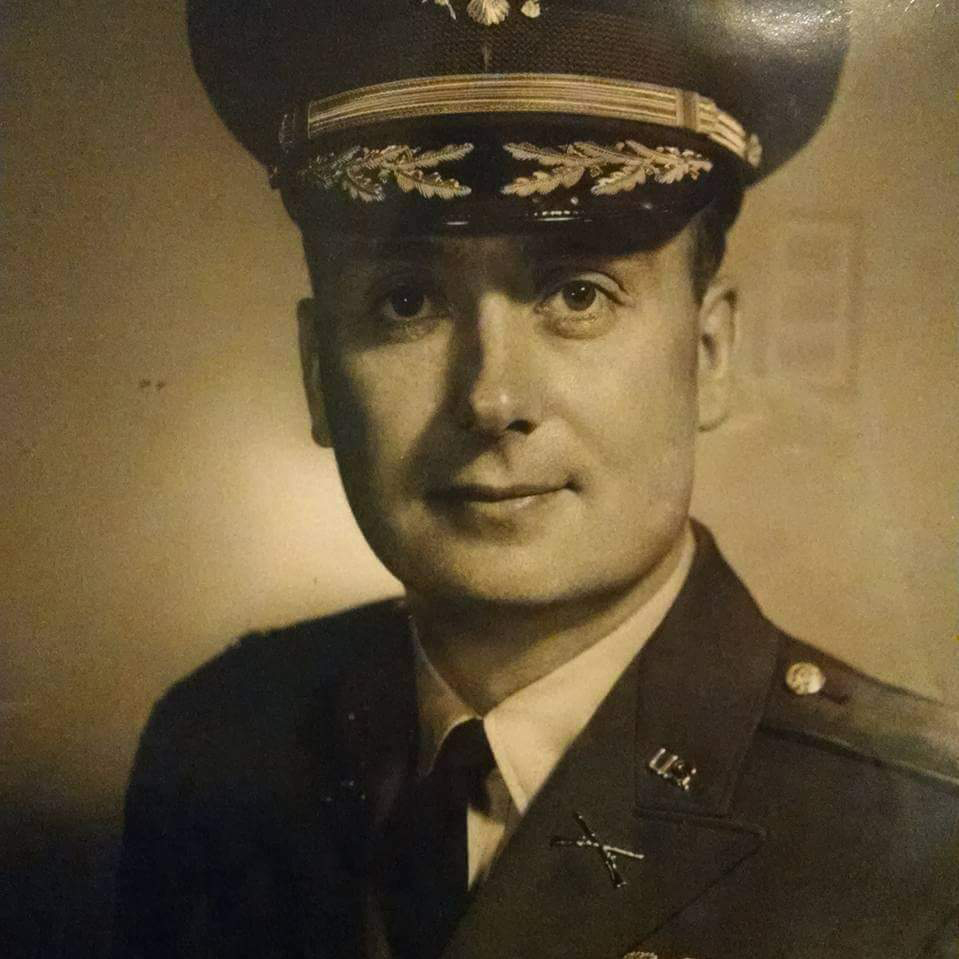
Jack Bailey commanded a secret military intelligence unit on the Boston campus during the Cold War. Photo from the Northeastern archives.
Born in Chicago, Bailey moved to Boston at a young age, and graduated from Boston University before serving in the Korean War as a combat infantry officer. He earned military medals from South Korea, France, and the United States, which decorated him with the Legion of Merit, Bronze Star for Valor, and Combat Infantryman Badge.
“Even in his very later years, he would never talk about his military service,” said Ruth Koury, a longtime family friend. “He was very proud of his service, but he had been through something traumatic and it was a painful memory. And he certainly didn’t want to publicize his own heroism.”
After the war, Bailey was based at the Pentagon for one year to help monitor and respond to the crisis in Germany that resulted in the construction of the Berlin Wall. He was hired by Northeastern in 1959 as an assistant to his mentor, Knowles. While serving as director of public relations in 1962, Bailey was honored as one of the “11 outstanding young men of Greater Boston,” alongside Senator Edward Kennedy and Boston Mayor Kevin White. He also served as dean of University College, overseeing more than 10,000 students in Northeastern’s largest division.
Throughout his decade at Northeastern, Bailey succeeded in recruiting talent and friendships. He was known for rushing through meals in order to leave more time for conversation.
“If you ate dinner or lunch with Jack Bailey, he would be the first one done before anybody else had even buttered the rolls,” said his friend, Joy Viola, who was a member of Northeastern’s administration for 31 years. “He and the other members of the 421st would go to the Officers Club for lunch, and I never saw anybody who ate so fast. Maybe he had to when he was in the Korean War. But I never saw anything like it.”
Bailey left Northeastern in 1969 to become president of Nasson College in Springvale, Maine, which he rescued from financial peril by instituting administrative reforms. He took on a larger reclamation project when he moved to Athens in 1975 as president of Pierce College and Deree College, which would be renamed The American College of Greece. During his 33 years in charge, he applied many of the lessons he learned from Knowles to develop the campus, strengthen the student body and faculty, and create a sustainable financial model. At the height of his influence, Bailey had handed out diplomas to more than 30,000 of the school’s 33,000 alumni.
Bailey summered in Elmore, Vermont, with his wife, Irene, and their children. On their frequent visits to Boston, they would stay downtown at the Union Club, and ask Viola to meet them. Her friendship with Bailey had spanned four decades when she was invited to lunch at his beloved restaurant at the Parker House in the midst of a snowstorm in December 2017.
“By then he was pretty frail,” Viola said. “He would take two or three steps and then he had to stop. I was glad when I finally got him back to the Union Club. I told my husband this may be the last time I see Jack. And it was.”
She smiled at the memory.
“He had Boston scrod for lunch, and apple pie,” Viola said. “And he still ate fast.”
For media inquiries, please contact media@northeastern.edu.

